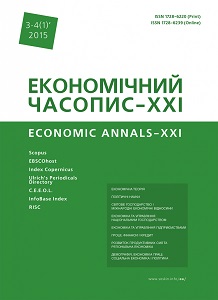Pole cities: economic development enhancers and limits. Case of two Hungarian regional centres
Pole cities: economic development enhancers and limits. Case of two Hungarian regional centres
Author(s): Mária Csete, Mariann SzabóSubject(s): Economy
Published by: Institute of Society Transformation
Keywords: Economic Development; Cohesion; Growth Models; Hungarian Pole Programme; Productive Consumption
Summary/Abstract: Pecs and Szeged, two Hungarian Pole cities (refers to F. Perroux’s Growth Pole Theory) in the top-down initiative Hungarian Pole Programme are examined in this research. The Pole cities which have been appointed to the Programme are those regional centres of Hungary where significant public and private companies, chambers, civil organisations, municipalities, universities and R&D institutions operate. The analysis carried out for years 2013-4014 has shown that the simulation of multiplier effects in the regions of the two cities was limited due to the relatively low level of the for-profit enterprises participation in the examined Programmes, limiting the increase of employees’ income level in the cities where Universities are the most influential factor in local economic development. We conclude that the Pole Programme itself was not the ultimate victorious strategy to decrease the regional disparities in Hungary. In the near future, economic Programmes must focus on how the local industries can relate to other industries and through productive consumption enhance the regions’ well-being.
Journal: Економічний часопис - ХХІ
- Issue Year: 149/2015
- Issue No: 03+04 (1)
- Page Range: 97-100
- Page Count: 4

